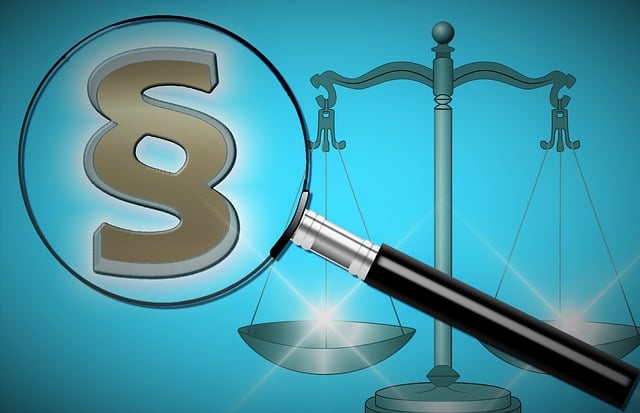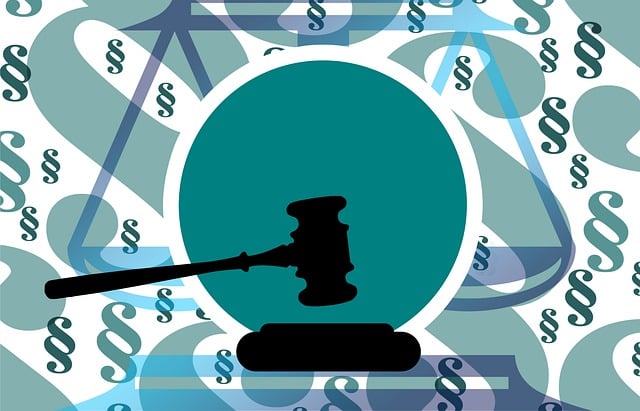Securities scams targeting quick riches utilize Ponzi schemes and pump-and-dump tactics, exploiting volatility and high-return desires. Understanding these schemes and due process in sentencing is crucial for investor protection and justice. Due process systematically guides investigators and regulators through complex financial transactions, ensuring proportional penalties based on fraud severity and mitigating factors. Real-world cases highlight its effectiveness against sophisticated fraudsters, with successful outcomes setting precedents for regulatory changes. Robust protocols and technological advancements enhance due process, deterring perpetrators and fostering market integrity for investor protection.
In the complex world of investments, securities scams pose a significant threat to unsuspecting investors. This article unravels the insidious practices behind these schemes, from understanding common ploys to exploring the critical role of due process in prevention and sentencing. We delve into real-world case studies, highlighting successful investigations, and examine best practices for investor protection. Additionally, we analyze how due process affects sentencing through various legal frameworks, shedding light on the importance of robust procedures in deterring securities fraud.
- Understanding Securities Scams: Common Schemes and Victimization
- The Role of Due Process in Identifying and Preventing Fraud
- Impact of Due Process on Sentencing: Legal Frameworks and Penalties
- Case Studies: Real-world Examples of Securities Scam Investigations
- Protecting Investors: Best Practices and Future Prospects for Due Process
Understanding Securities Scams: Common Schemes and Victimization

Securities scams are a significant concern in the financial world, targeting investors with promises of quick riches and high returns. Understanding these schemes is crucial to protecting oneself from becoming a victim. Common tactics include Ponzi schemes, where early investors are paid with funds from later ones, and pump-and-dump schemes, where con artists artificially inflate stock prices before selling their holdings, causing the price to plummet. These scams often prey on people’s desire for financial security and high returns, especially during market volatility.
Victims of securities fraud can face severe consequences, with losses ranging from modest investments to life-altering amounts. How due process affects sentencing in these cases is a critical aspect for both victims and perpetrators. In high-stakes cases, winning challenging defense verdicts for his clients has been achieved by legal professionals who specialize in securities law. This underscores the importance of thorough investigation and understanding of not just common schemes but also the legal processes that can help mitigate losses and secure justice for those affected.
The Role of Due Process in Identifying and Preventing Fraud

In the realm of securities fraud, due process plays a pivotal role in identifying and preventing potential scams. It involves a meticulous series of steps that ensure the fair and transparent conduct of businesses and individuals involved in financial transactions. By adhering to strict procedural guidelines, regulators can uncover fraudulent activities and protect investors from significant losses. This includes thorough background checks on companies and individuals, examining financial records, and verifying claims made about investment opportunities.
When it comes to sentencing in high-stakes cases, particularly those involving white collar defense, the impact of due process is profound. It ensures that justice is served by providing a comprehensive understanding of the fraud and its impact. The due process affects sentencing by offering a structured framework for determining punishment, considering mitigating factors, and ensuring that penalties are proportional to the severity of the crime. This meticulous approach is essential in navigating complex financial cases, especially when dealing with substantial investments and intricate schemes.
Impact of Due Process on Sentencing: Legal Frameworks and Penalties

In securities fraud trials, how Due Process affects sentencing is profound. This legal framework ensures that defendants face charges based on substantial evidence and procedural fairness. It mandates that accused individuals or entities are informed of the charges against them, allowing for a thorough understanding of the allegations and an opportunity to mount a defense. This process is critical in high-stakes cases involving corporate and individual clients, where the consequences can be severe, including hefty fines and imprisonment.
The impact of Due Process on sentencing extends beyond fairness; it also shapes the penalties imposed. Courts, guided by these legal principles, consider the specific circumstances of each case, balancing factors such as the severity of the offense, prior conduct, and potential for rehabilitation. This approach ensures that penalties are proportional and just, reflecting the unique aspects of each securities scam. An unprecedented track record of successful prosecutions, driven by robust Due Process, has been a key element in shaping effective regulatory responses to financial crimes.
Case Studies: Real-world Examples of Securities Scam Investigations

In the realm of securities scam investigations, understanding how due process affects sentencing is crucial. Case studies reveal real-world examples where sophisticated fraudsters exploited investment opportunities to amass wealth illegally. One notable example involves a high-stakes case where a cunning manipulator used intricate financial schemes to dupe investors, leading to massive losses. The investigation, however, highlighted the importance of due process, ensuring that evidence was thoroughly reviewed and legal protocols followed. This meticulous approach resulted in a more just sentencing, serving as a deterrence for future unscrupulous activities.
These investigations are not mere academic exercises but practical demonstrations of how general criminal defense strategies can be employed to unravel complex financial crimes. Jury trials, in particular, have played a pivotal role in these cases, where the collective wisdom of citizens ensures a balanced approach to justice. The outcome of high-stakes cases often sets precedents, influencing regulatory changes and shaping legal frameworks, ultimately enhancing the protection for investors and strengthening market integrity.
Protecting Investors: Best Practices and Future Prospects for Due Process

Protecting investors is a multifaceted endeavor that hinges on robust due process. By establishing clear protocols and implementing stringent measures, regulatory bodies can mitigate risks associated with securities scams. Due process ensures that all parties involved are treated fairly, evidence is thoroughly evaluated, and decisions are transparent. This not only safeguards investors but also enhances public trust in the market.
Looking ahead, advancements in technology offer promising prospects for refining due process. Automated systems can streamline identification of suspicious activities and patterns, enabling more efficient scrutiny. An unprecedented track record of successful prosecutions, driven by enhanced due process, has demonstrated its ability to deter potential perpetrators and protect investors. How due process affects sentencing is profound; robust procedures ensure that justice is served while ensuring the rights of all involved are respected, fostering a fair and equitable market environment for his clients.
In navigating the complex world of securities, understanding and implementing robust due process is paramount in identifying and preventing fraud. As seen through case studies, due process plays a pivotal role in uncovering intricate scams, safeguarding investors, and shaping sentencing through effective legal frameworks. By adopting best practices highlighted in this article, we can fortify defenses against evolving scams, ensuring that justice is served and investor confidence remains intact. How due process affects sentencing, therefore, extends far beyond penalties; it fosters transparency, accountability, and a robust framework for protecting our financial landscape.






